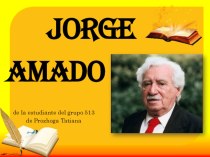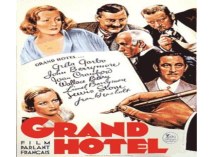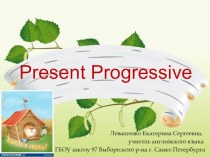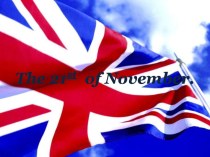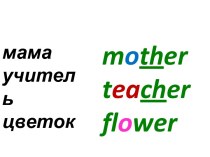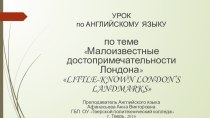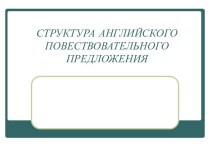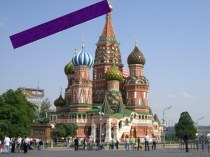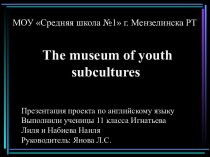- Главная
- Разное
- Бизнес и предпринимательство
- Образование
- Развлечения
- Государство
- Спорт
- Графика
- Культурология
- Еда и кулинария
- Лингвистика
- Религиоведение
- Черчение
- Физкультура
- ИЗО
- Психология
- Социология
- Английский язык
- Астрономия
- Алгебра
- Биология
- География
- Геометрия
- Детские презентации
- Информатика
- История
- Литература
- Маркетинг
- Математика
- Медицина
- Менеджмент
- Музыка
- МХК
- Немецкий язык
- ОБЖ
- Обществознание
- Окружающий мир
- Педагогика
- Русский язык
- Технология
- Физика
- Философия
- Химия
- Шаблоны, картинки для презентаций
- Экология
- Экономика
- Юриспруденция
Что такое findslide.org?
FindSlide.org - это сайт презентаций, докладов, шаблонов в формате PowerPoint.
Обратная связь
Email: Нажмите что бы посмотреть
Презентация на тему по английскому языку на тему Чайные традиции
Содержание
- 2. CONTENTS:1)The history of tea in England.2)The
- 3. THE HISTORY OF TEA IN ENGLAND
- 4. English tea drinking traditions have a long
- 5. When the first tea was
- 6. However from the 18th century tea began
- 7. Traditions of tea drinking in England The
- 8. Tea is traditionally served with milk. It
- 9. The classical tea ceremony is served with
- 10. THE HISTORY OF TEA IN RUSSIA
- 11. In 1567 Cossack atamans Petrov and Yalyshev
- 12. Tea was brought to Russia from Northern
- 13. By 1820 the set of rules and
- 14. The last point of the Russian tea
- 15. Russian people drank tea from samovars. It
- 16. DIFFERENCES:English tea-drinking became a tradition in 1840.English
- 17. СПИСОК ИСПОЛЬЗОВАННОЙ ЛИТЕРАТУРЫPlanet of English: учебник английского
- 18. Скачать презентацию
- 19. Похожие презентации
CONTENTS:1)The history of tea in England.2)The history of tea in Russia.3)The differences between the two great traditions.
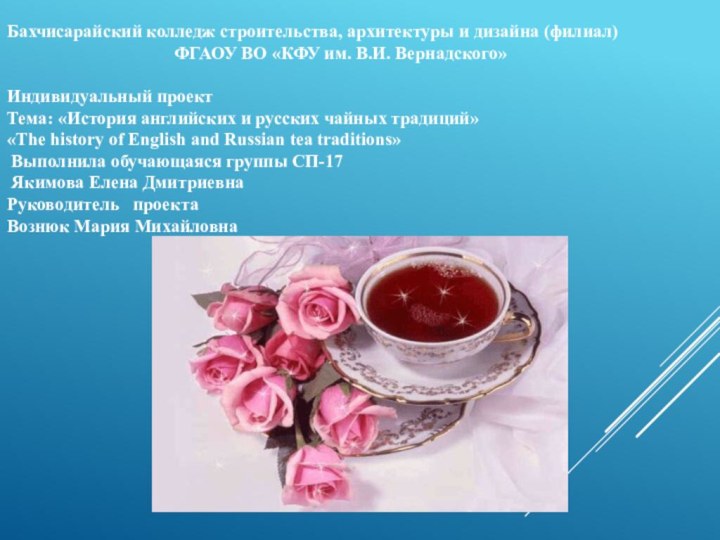
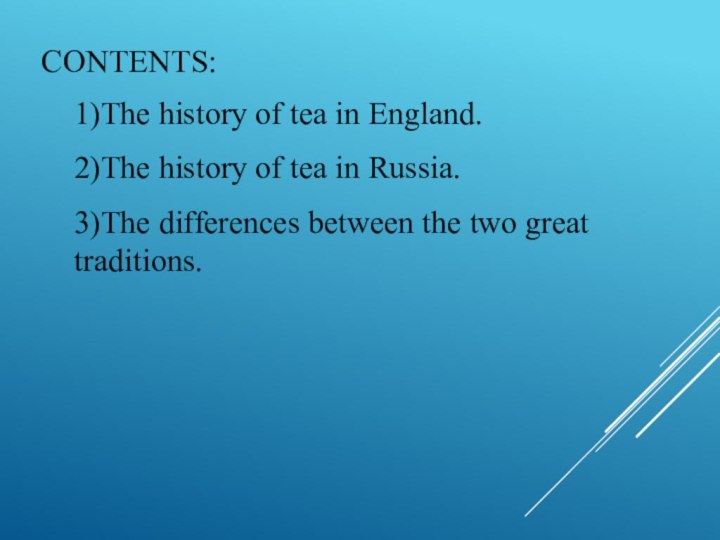
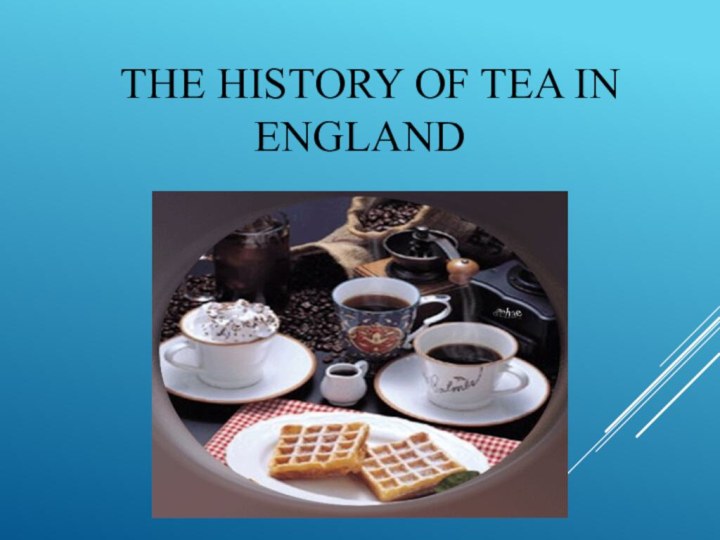
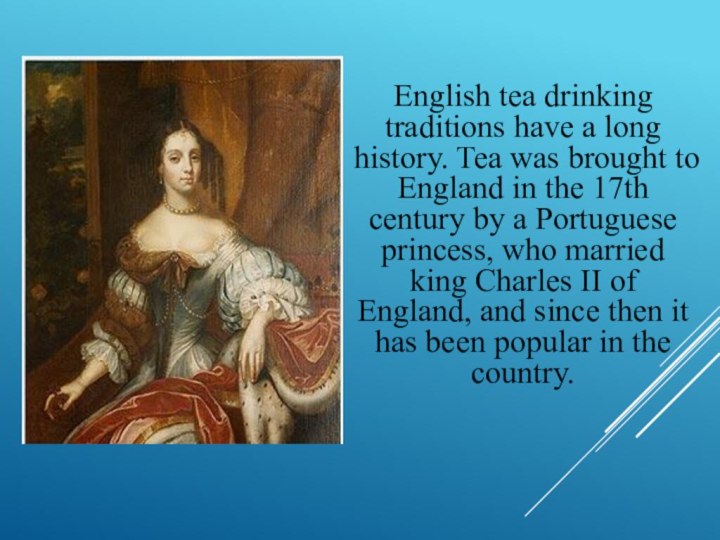
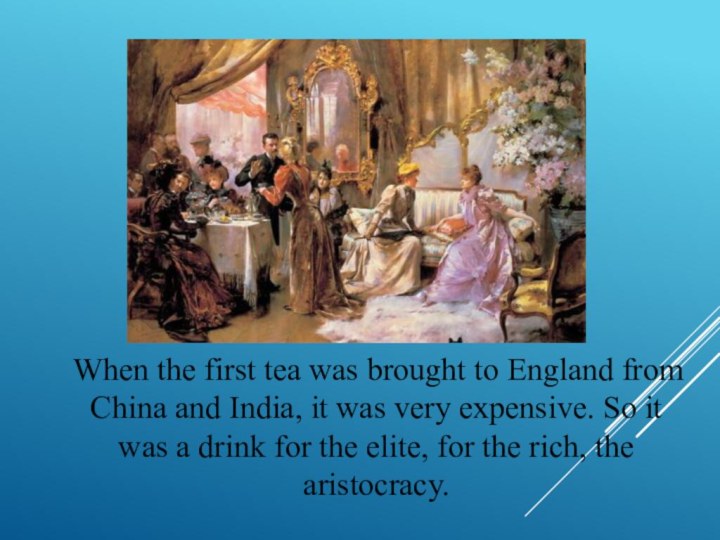
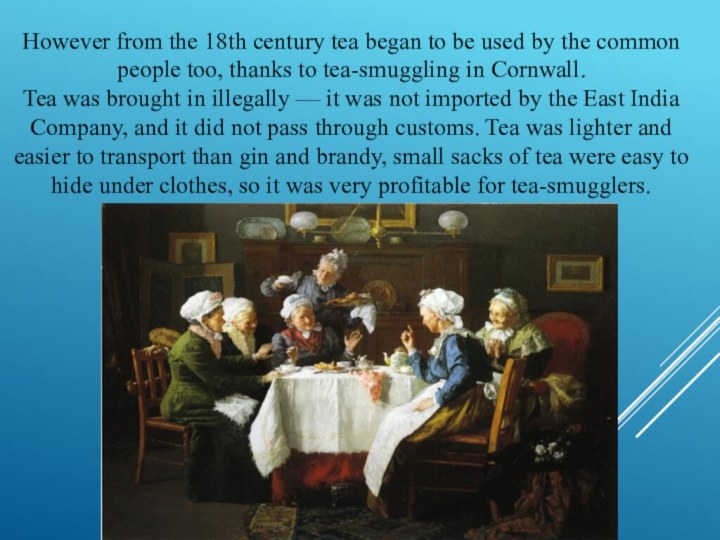
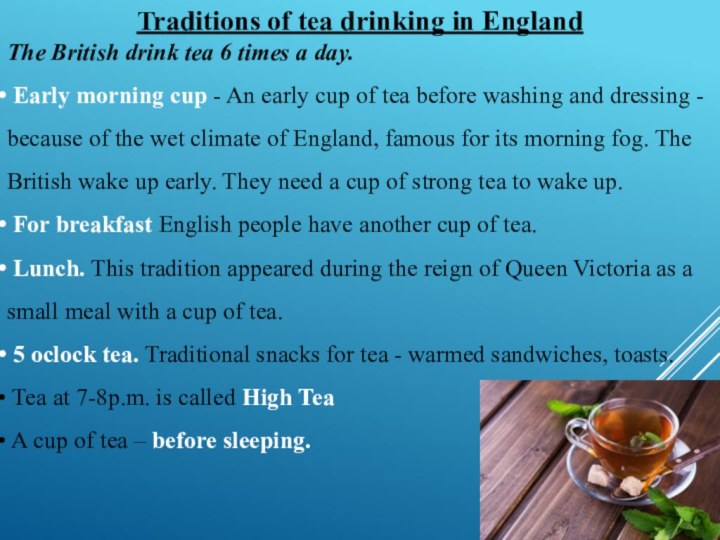
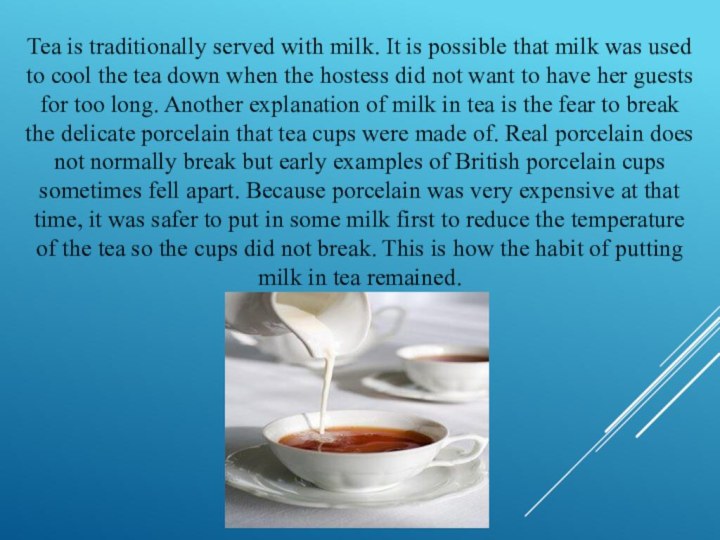
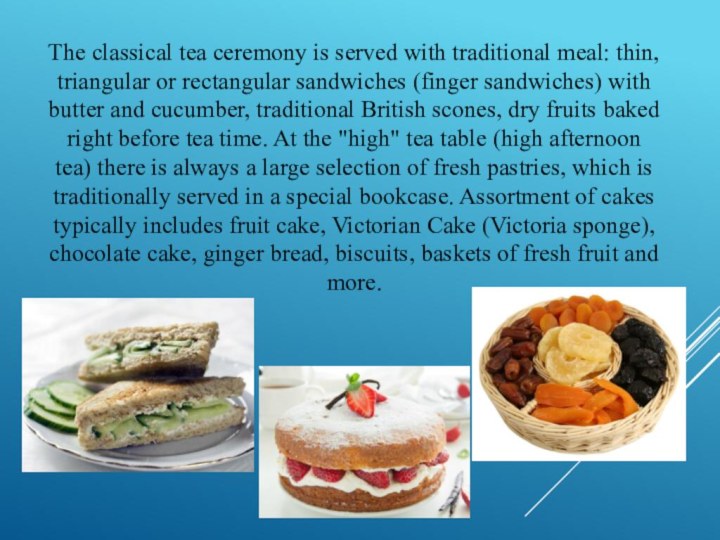
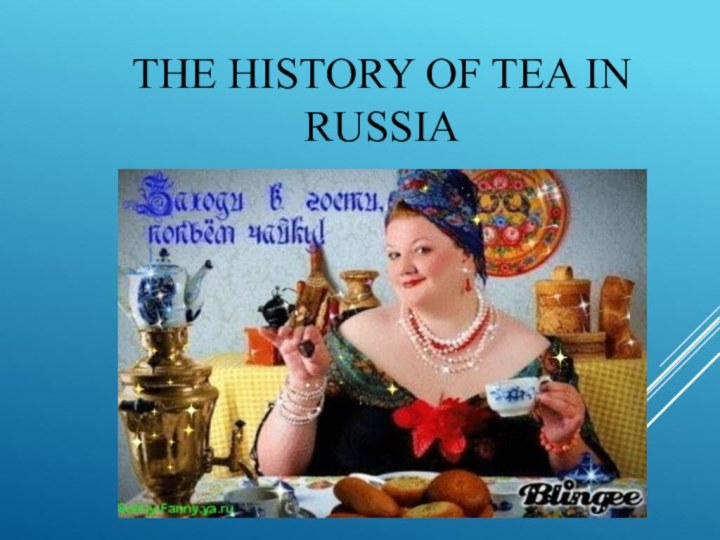
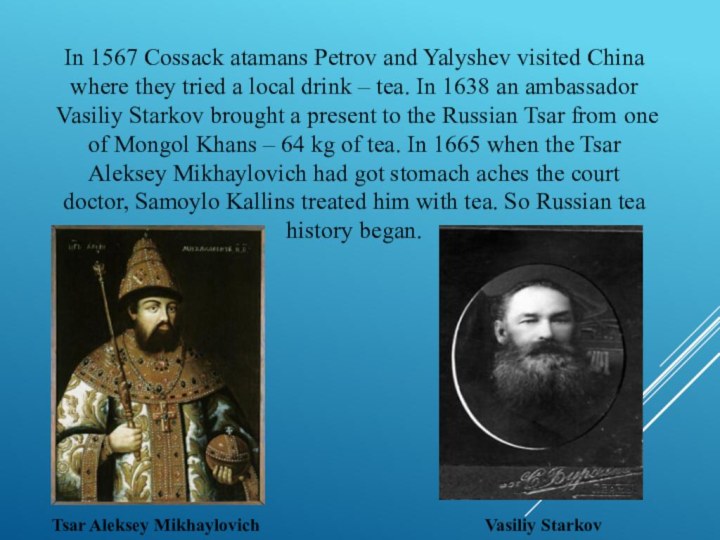
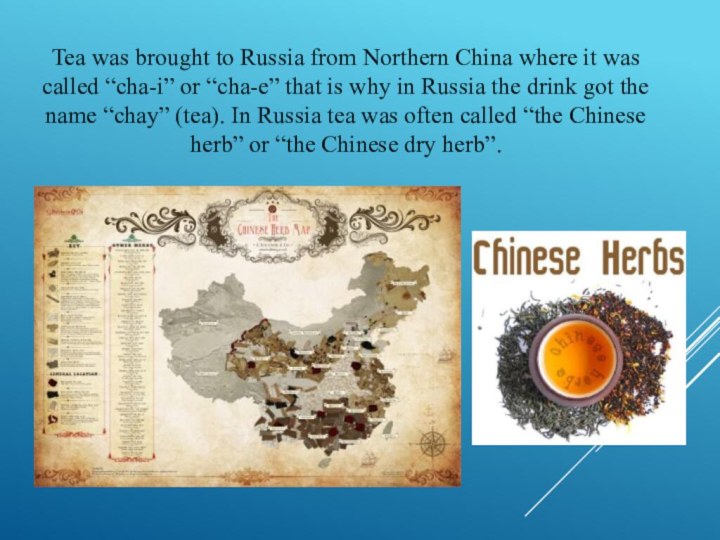
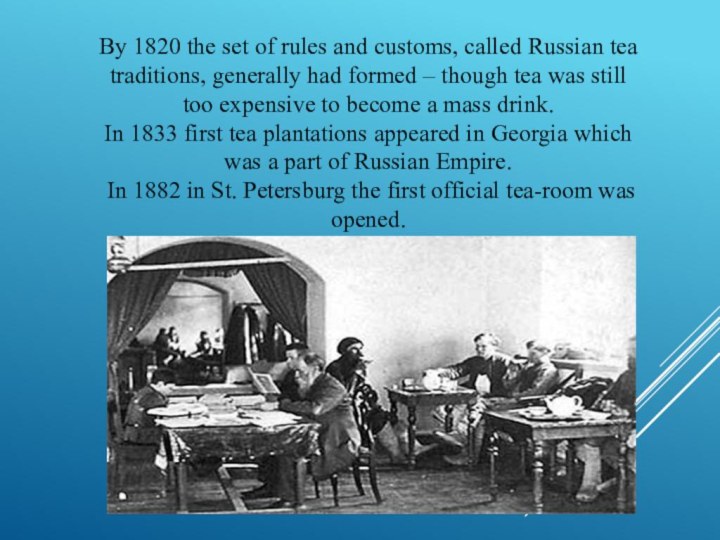
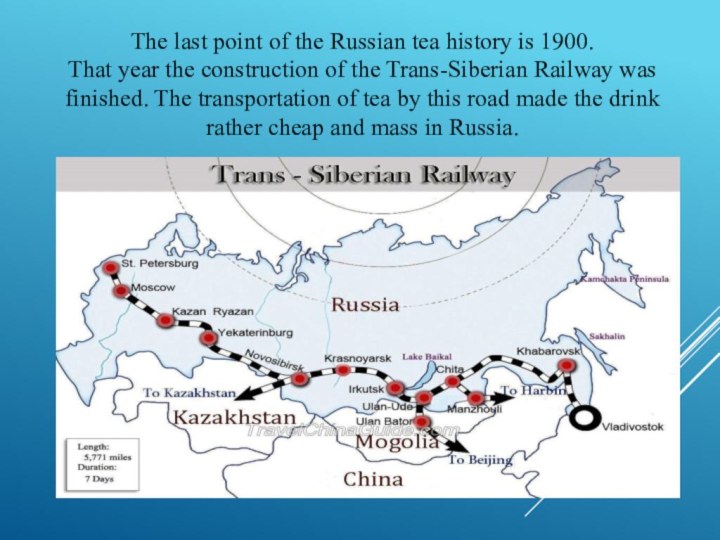
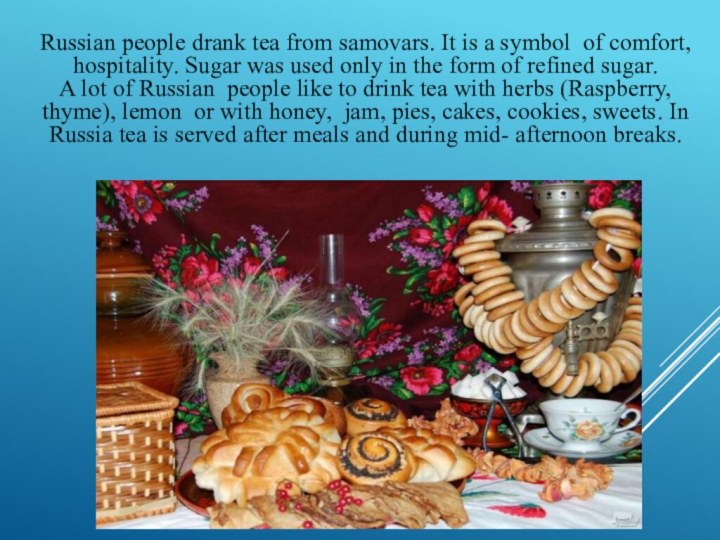
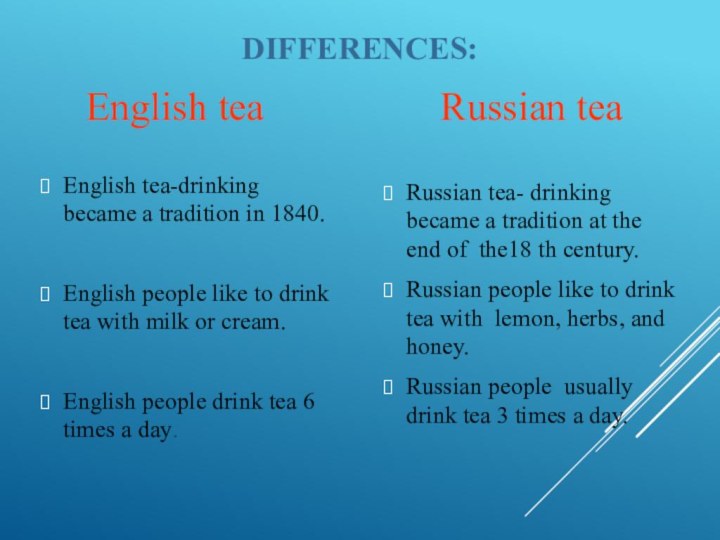
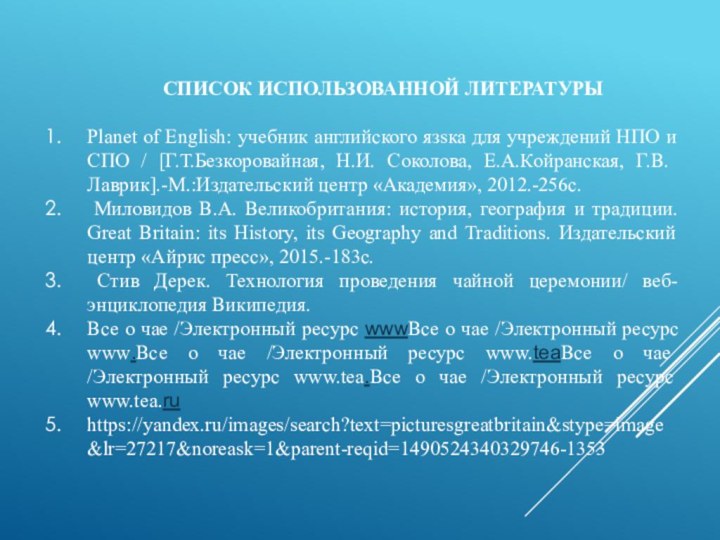
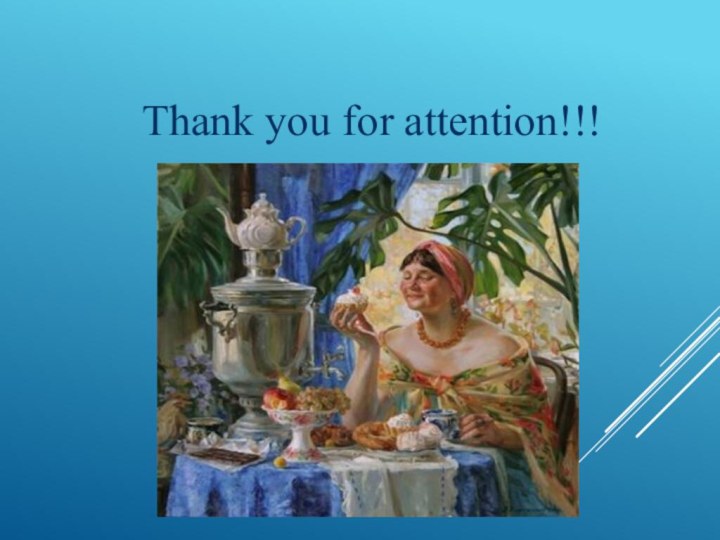
Слайд 4 English tea drinking traditions have a long history.
Tea was brought to England in the 17th century
by a Portuguese princess, who married king Charles II of England, and since then it has been popular in the country.Слайд 5 When the first tea was brought
to England from China and India, it was very
expensive. So it was a drink for the elite, for the rich, the aristocracy.Слайд 6 However from the 18th century tea began to
be used by the common people too, thanks to
tea-smuggling in Cornwall.Tea was brought in illegally — it was not imported by the East India Company, and it did not pass through customs. Tea was lighter and easier to transport than gin and brandy, small sacks of tea were easy to hide under clothes, so it was very profitable for tea-smugglers.
Слайд 7
Traditions of tea drinking in England
The British
drink tea 6 times a day.
Early morning
cup - An early cup of tea before washing and dressing - because of the wet climate of England, famous for its morning fog. The British wake up early. They need a cup of strong tea to wake up. For breakfast English people have another cup of tea.
Lunch. This tradition appeared during the reign of Queen Victoria as a small meal with a cup of tea.
5 oclock tea. Traditional snacks for tea - warmed sandwiches, toasts.
Tea at 7-8p.m. is called High Tea
A cup of tea – before sleeping.
Слайд 8 Tea is traditionally served with milk. It is
possible that milk was used to cool the tea
down when the hostess did not want to have her guests for too long. Another explanation of milk in tea is the fear to break the delicate porcelain that tea cups were made of. Real porcelain does not normally break but early examples of British porcelain cups sometimes fell apart. Because porcelain was very expensive at that time, it was safer to put in some milk first to reduce the temperature of the tea so the cups did not break. This is how the habit of putting milk in tea remained.Слайд 9 The classical tea ceremony is served with traditional
meal: thin, triangular or rectangular sandwiches (finger sandwiches) with
butter and cucumber, traditional British scones, dry fruits baked right before tea time. At the "high" tea table (high afternoon tea) there is always a large selection of fresh pastries, which is traditionally served in a special bookcase. Assortment of cakes typically includes fruit cake, Victorian Cake (Victoria sponge), chocolate cake, ginger bread, biscuits, baskets of fresh fruit and more.Слайд 11 In 1567 Cossack atamans Petrov and Yalyshev visited
China where they tried a local drink – tea.
In 1638 an ambassador Vasiliy Starkov brought a present to the Russian Tsar from one of Mongol Khans – 64 kg of tea. In 1665 when the Tsar Aleksey Mikhaylovich had got stomach aches the court doctor, Samoylo Kallins treated him with tea. So Russian tea history began.Tsar Aleksey Mikhaylovich
Vasiliy Starkov
Слайд 12 Tea was brought to Russia from Northern China
where it was called “cha-i” or “cha-e” that is
why in Russia the drink got the name “chay” (tea). In Russia tea was often called “the Chinese herb” or “the Chinese dry herb”.Слайд 13 By 1820 the set of rules and customs,
called Russian tea traditions, generally had formed – though
tea was still too expensive to become a mass drink.In 1833 first tea plantations appeared in Georgia which was a part of Russian Empire.
In 1882 in St. Petersburg the first official tea-room was opened.
Слайд 14 The last point of the Russian tea history
is 1900. That year the construction of the Trans-Siberian Railway
was finished. The transportation of tea by this road made the drink rather cheap and mass in Russia.Слайд 15 Russian people drank tea from samovars. It is
a symbol of comfort, hospitality. Sugar was used only
in the form of refined sugar.A lot of Russian people like to drink tea with herbs (Raspberry, thyme), lemon or with honey, jam, pies, cakes, cookies, sweets. In Russia tea is served after meals and during mid- afternoon breaks.
Слайд 16
DIFFERENCES:
English tea-drinking became a tradition in 1840.
English people
like to drink tea with milk or cream.
English people
drink tea 6 times a day.Russian tea- drinking became a tradition at the end of the18 th century.
Russian people like to drink tea with lemon, herbs, and honey.
Russian people usually drink tea 3 times a day.
English tea
Russian tea
Слайд 17
СПИСОК ИСПОЛЬЗОВАННОЙ ЛИТЕРАТУРЫ
Planet of English: учебник английского язsка
для учреждений НПО и СПО / [Г.Т.Безкоровайная, Н.И. Соколова,
Е.А.Койранская, Г.В. Лаврик].-М.:Издательский центр «Академия», 2012.-256с.Миловидов В.А. Великобритания: история, география и традиции. Great Britain: its History, its Geography and Traditions. Издательский центр «Айрис пресс», 2015.-183с.
Стив Дерек. Технология проведения чайной церемонии/ веб-энциклопедия Википедия.
Все о чае /Электронный ресурс wwwВсе о чае /Электронный ресурс www.Все о чае /Электронный ресурс www.teaВсе о чае /Электронный ресурс www.tea.Все о чае /Электронный ресурс www.tea.ru
https://yandex.ru/images/search?text=picturesgreatbritain&stype=image&lr=27217&noreask=1&parent-reqid=1490524340329746-1353





